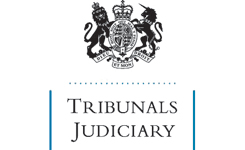|
Notes:
|
Reported as [2016] AACR 22.
Recovery of overpayments – evidence – whether evidence of telephone call recording systems required
Human rights law – Article 6 (fair hearing) – appropriate remedy for breach of “reasonable time” criterion
In 2004 the Department for Work and Pensions (DWP) decided, after receiving details of the appellant’s earnings from Her Majesty’s Revenue and Customs (HMRC), that he had been overpaid carer’s allowance (CA) from 2001. It was only in 2007, however, that it decided that the overpayment was recoverable from him. Although the appellant appealed against that decision, it was not recognised and accepted as a valid appeal until 2012 when, after receiving a court order, the appellant wrote to the DWP to say that his earnings had been below the statutory limit for CA. A CAB subsequently wrote on the appellant’s behalf to say that he had returned the CA order book in 2004. The first hearing of the appeal by the First-tier Tribunal (F-tT) was adjourned after the appellant stated that he had phoned the DWP in 2001 to confirm his employment and that he had received no further payments of CA after returning an order book in 2002. The DWP then searched its records and confirmed that no order book had been returned until 2004 as per the CAB’s letter. The reconvened F-tT rejected the appeal. Among the issues before the Upper Tribunal (UT) was whether the F-tT had erred in law by failing to obtain confirmation of the DWP’s procedure for recording telephone calls, whether it should have made findings of fact about who cashed the benefit payments after 2002 and whether the appellant’s rights to a fair hearing “within a reasonable time”, under Article 6 of the European Convention on Human Rights (ECHR), had been breached by the DWP’s delays.
Held, disallowing the appeal, that:
1. the burden of proof was not usually decisive and its application was only useful if the relevant evidence, having been gathered and weighed, was genuinely equally balanced: Kerr v Department for Social Development [2004] UKHL 23; R 1/04(SF). The F-tT’s decision that the appellant had failed to disclose his earnings was reasonable, given the available evidence (paragraphs 18 to 20);
2. applying Mongan v Department for Social Development [2005] NICA 16; R 3/05(DLA), even had the accuracy of the CA unit’s telephone recording systems been an issue raised by the appeal, a F-tT was not legally obliged to call for evidence of the DWP’s system of recording telephone calls in every overpayment case where telephone disclosure was alleged but the DWP had no record of any contact. All section 12 of the Social Security Act 1998 required was for the F-tT to consider an issue raised by the appeal and to determine it based on the relevance of the issue raised, the strength of other relevant evidence and the likelihood of any evidence raised assisting in resolving a contested issue of fact. There was, furthermore, no general rule that regardless of all other evidence, evidence of the DWP’s telephone record keeping ought to be provided to, or sought by, the F-tT in all cases where it was alleged that telephone disclosure had been made. In addition, the statement made in the appeal response – “in this case a full search of the CA clerical records has not revealed any evidence that the [appellant] contacted the CA Unit at any point concerning his employments” – amounted to evidence and had to be weighed as such, and was not simply to be discounted on the basis that it failed to discharge the burden of proof: CSB/347/1983 not followed and disapproved (paragraphs 23, 31 and 41 to 43);
3. there was no credible evidence that ought to have led the F-tT to seek further evidence from the DWP as to where the order books had been sent or who had cashed them or to take these issues as relevant to the appeal (paragraph 48);
4. a F-tT could not remedy a breach of Article 6(1) of ECHR where an appeal could not be determined in a reasonable time by allowing the appeal. Its obligation was to decide the appeal on the evidence before it, making due allowance for any delay. Neither the F-tT nor the UT had any statutory power to award the appellant compensation for the effects of any delay. Such a remedy lay elsewhere: AH v London Borough of Hackney (HB) [2014] UKUT 47 (AAC) (paragraphs 51 to 62).
|
